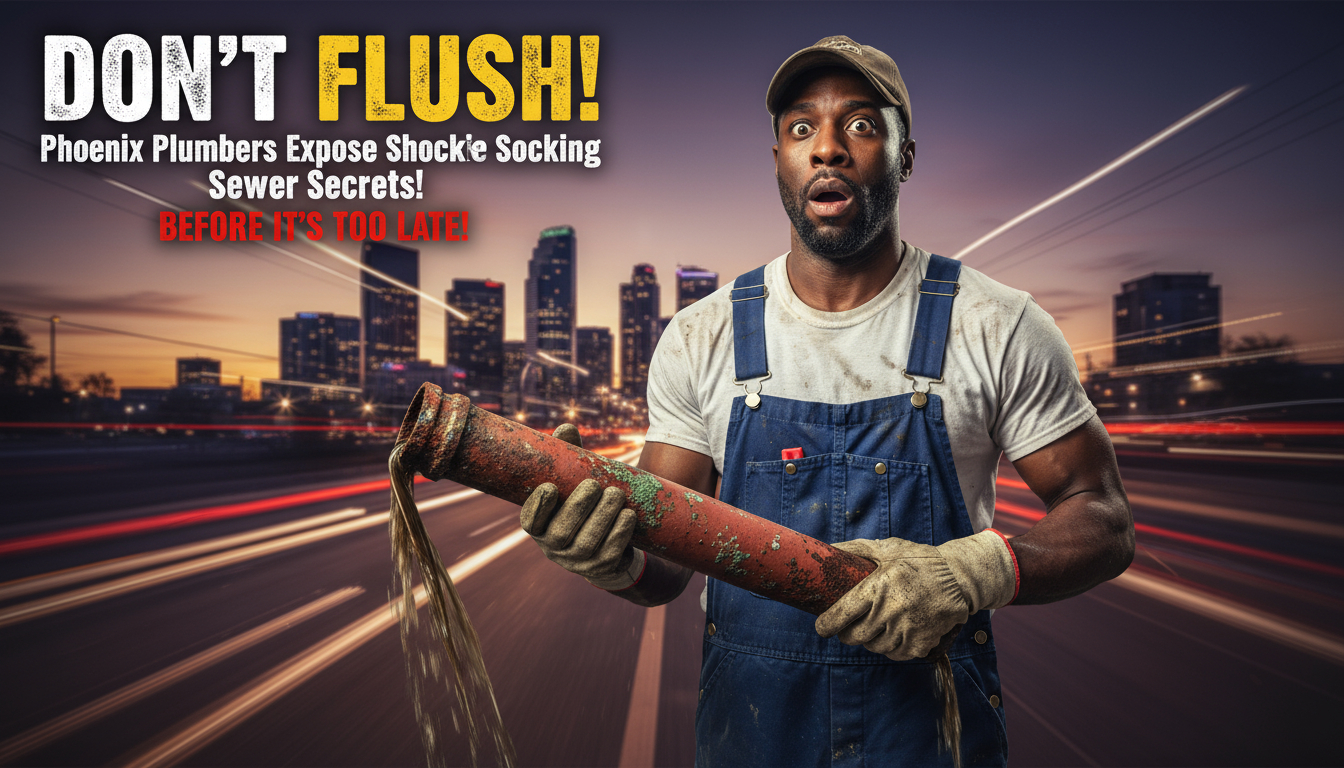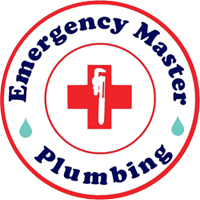

Living in Phoenix, Arizona, means dealing with unique environmental challenges that can wreak havoc on your home’s plumbing system. The intense desert heat, occasional monsoon floods, and aging infrastructure in many neighborhoods make sewer line issues more common than you might think. Ignoring early warning signs can lead to costly repairs, health hazards, and even property damage. As a trusted resource for homeowners in the Valley of the Sun, this guide dives deep into sewer line problems, helping you spot issues early and take action. We’ll cover everything from common causes to practical prevention tips, all tailored to Phoenix’s climate and conditions.
Whether you’re in a historic home in downtown Phoenix or a modern build in Scottsdale, understanding these signs can save you thousands. Let’s explore how to protect your property and maintain a healthy plumbing system.
Understanding Sewer Lines and Why They Matter in Phoenix
Sewer lines are the underground pipes that carry wastewater from your home to the city’s main sewer system or a septic tank. In Phoenix, these lines often face extra stress due to the region’s hard water, which causes mineral buildup, and the expansive clay soil that shifts during temperature changes. Older homes built before the 1980s may still have cast iron or clay pipes, which are prone to cracking under these conditions.
A damaged sewer line isn’t just an inconvenience— it can lead to sewage backups, contaminated water, and even foundation issues. According to local plumbing data, Phoenix sees a spike in sewer-related calls during summer monsoons when heavy rains overload systems. Recognizing problems early prevents emergencies, reduces repair costs, and ensures your family’s safety. If left unchecked, a simple clog can escalate into a full line replacement, costing upwards of $5,000 to $10,000 in the Phoenix area.
Common Causes of Sewer Line Problems in Phoenix
Before spotting the signs, it’s helpful to know what triggers these issues. Phoenix’s unique environment plays a big role:
- Tree Roots Invasion: In our arid climate, tree roots seek moisture aggressively. They can infiltrate tiny cracks in pipes, expanding and causing blockages. This is especially common in neighborhoods like Arcadia or Encanto with mature landscaping.
- Aging Pipes: Many Phoenix homes have pipes from the mid-20th century. Cast iron deteriorates over time, leading to cracks or collapses. The extreme heat accelerates corrosion.
- Grease and Debris Buildup: Everyday items like cooking grease, hygiene products, and hair create clogs that narrow pipes. In Phoenix’s hard water, mineral scaling adds to the problem.
- Soil Shifts and Monsoon Damage: The desert soil expands and contracts with temperature swings and rain, putting pressure on buried lines. Flash floods during monsoon season can erode soil around pipes, causing shifts or breaks.
- Improper Installation or Maintenance: DIY fixes or neglected maintenance can exacerbate issues, leading to recurring problems.
Understanding these causes empowers you to address risks proactively. Now, let’s focus on the early warning signs that signal trouble.
Early Warning Signs of Sewer Line Problems
Catching issues early is key to avoiding disasters. Sewer problems often start subtly but worsen quickly in Phoenix’s hot, dry conditions. Here are the most common indicators, based on expert observations from plumbing professionals.
1. Slow-Draining Fixtures Throughout the House
If multiple sinks, tubs, or toilets are draining slowly, it’s a red flag for a main sewer line issue. Unlike a single clogged drain, this affects the whole system. In Phoenix, mineral buildup from hard water often contributes, narrowing pipes over time.
For example, if your kitchen sink takes forever to empty while the bathroom shower backs up, the problem likely lies deeper in the line. Don’t ignore this— it can lead to complete blockages if untreated.
2. Gurgling Noises from Drains or Toilets
Hear strange gurgling sounds when you flush or run water? This happens when air gets trapped in the pipes due to a developing clog or vent issue. It’s like your plumbing is “burping” because wastewater can’t flow freely.
In Phoenix homes, this is often linked to partial blockages from debris or roots. If accompanied by slow drains, call a professional immediately to prevent backups.
3. Unpleasant Odors Wafting from Drains
A persistent sewage smell in your home or yard is a serious warning. It could indicate trapped organic matter decomposing in the pipes or a vent problem allowing sewer gas to escape.
Phoenix’s warm weather speeds up decomposition, making odors more noticeable. If you smell it outdoors, especially near greener patches of grass, it might mean a leak underground. Sewer gas is hazardous, so address this promptly to avoid health risks.
4. Frequent or Recurring Clogs
One clog might be isolated, but repeated issues in multiple drains point to a deeper problem. If plunging or snaking doesn’t provide lasting relief, the main line could be obstructed by roots or buildup.
In older Phoenix suburbs like Glendale or Tempe, this is common due to aging infrastructure. Track how often clogs happen— if it’s monthly, it’s time for a camera inspection.
5. Water Backups in Unexpected Places
Seeing water rise in your shower when you flush the toilet? Or laundry water bubbling up in a floor drain? These cross-backups mean wastewater can’t exit properly, often due to a main line blockage.
During Phoenix monsoons, heavy rain can overwhelm systems, making backups more likely. This is an emergency sign— sewage backups pose contamination risks.
6. Soggy or Unusually Green Spots in Your Yard
Notice a wet, soggy area in your lawn that smells like sewage? Or a patch of grass that’s greener and grows faster than the rest? This could indicate a leaking sewer line allowing wastewater to seep into the soil.
In Phoenix’s desert landscape, where yards are often xeriscaped, these spots stand out. Tree roots or soil shifts are frequent culprits here.
7. Foundation Cracks or Sinkholes
Less common but critical: Small sinkholes or new cracks in your home’s foundation might stem from a leaking sewer line eroding the soil beneath. Phoenix’s expansive clay soil amplifies this risk during wet seasons.
If you spot these, combine them with other signs for a full assessment. Ignoring them could lead to structural damage.
By monitoring these signs, you can act before minor issues become major headaches. Remember, in Phoenix’s climate, problems escalate fast— early detection is your best defense.
What to Do If You Notice These Warning Signs
Spotting a sign? Don’t panic, but don’t delay. Here’s a step-by-step guide to problem-solving:
- Assess the Scope: Check if the issue affects one fixture or the whole house. Isolated problems might be simple clogs, but widespread ones suggest sewer line trouble.
- Avoid DIY Fixes for Main Lines: Plungers work for minor clogs, but chemicals can damage pipes. For suspected sewer issues, skip them.
- Schedule a Professional Inspection: Call a licensed plumber for a video camera inspection. This non-invasive method pinpoints blockages, roots, or breaks without digging.
- Consider Temporary Measures: Reduce water usage until help arrives. Avoid flushing non-degradable items.
- Plan for Repairs: Options include hydro-jetting for clogs, trenchless repairs for minimal disruption, or full replacement for severe damage. In Phoenix, trenchless methods are popular to avoid disturbing desert landscaping.
Acting quickly can limit damage and costs. For instance, a simple cleaning might cost $200-$500, versus thousands for emergencies.
Prevention Tips for Sewer Line Issues in Phoenix
Prevention is always better than cure, especially in our harsh Arizona environment. Here are actionable tips to keep your lines clear:
- Schedule Regular Maintenance: Annual inspections catch issues early. Hydro-jetting removes buildup effectively.
- Be Mindful of What Goes Down Drains: Avoid grease, wipes, and feminine products. Use strainers in sinks.
- Manage Landscaping: Plant trees away from sewer lines. Consider root barriers if roots are a concern.
- Install Water Softeners: Combat Phoenix’s hard water to reduce mineral scaling.
- Monitor During Monsoons: Clear debris from outdoor drains before storms.
Implementing these habits can extend your sewer line’s life by years, saving money and stress.
Why Phoenix Homeowners Need Expert Help
Phoenix’s unique challenges— from scorching summers to flash floods— demand local expertise. Ignoring signs can lead to health issues like mold or contamination, plus expensive fixes.
If you’re facing any of these warning signs, it’s time to call in professionals who understand Arizona plumbing.
For reliable service, we recommend Emergency Master Plumbing & Air. With years of experience serving the Phoenix area, they specialize in sewer line inspections, repairs, and emergencies. Contact them at 623-584-4706 for prompt, expert assistance. Don’t let sewer problems disrupt your life— get help today.
